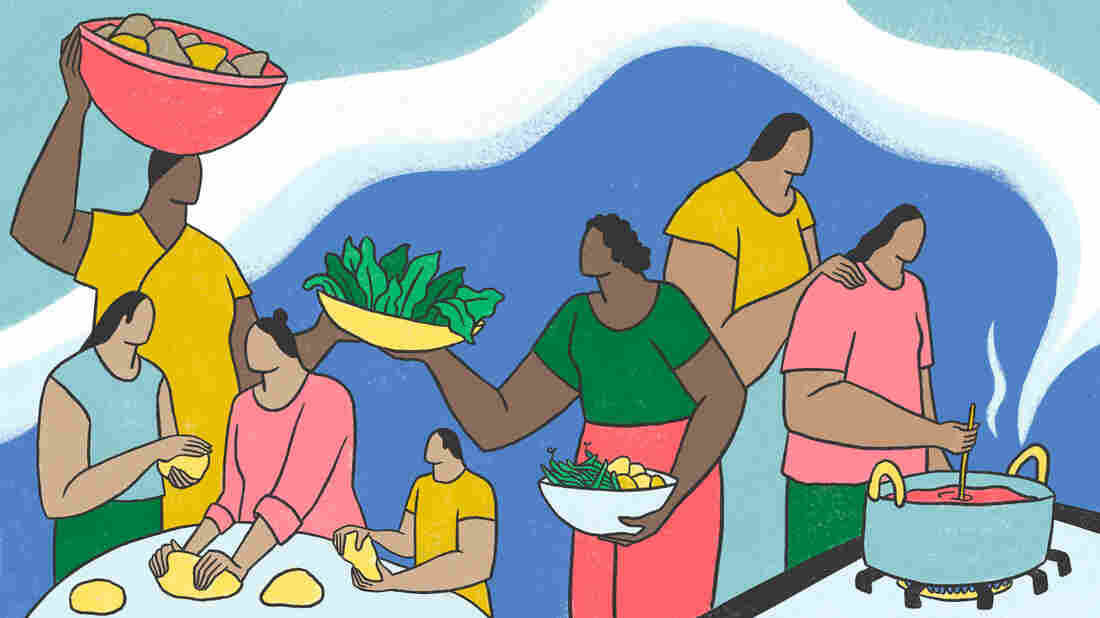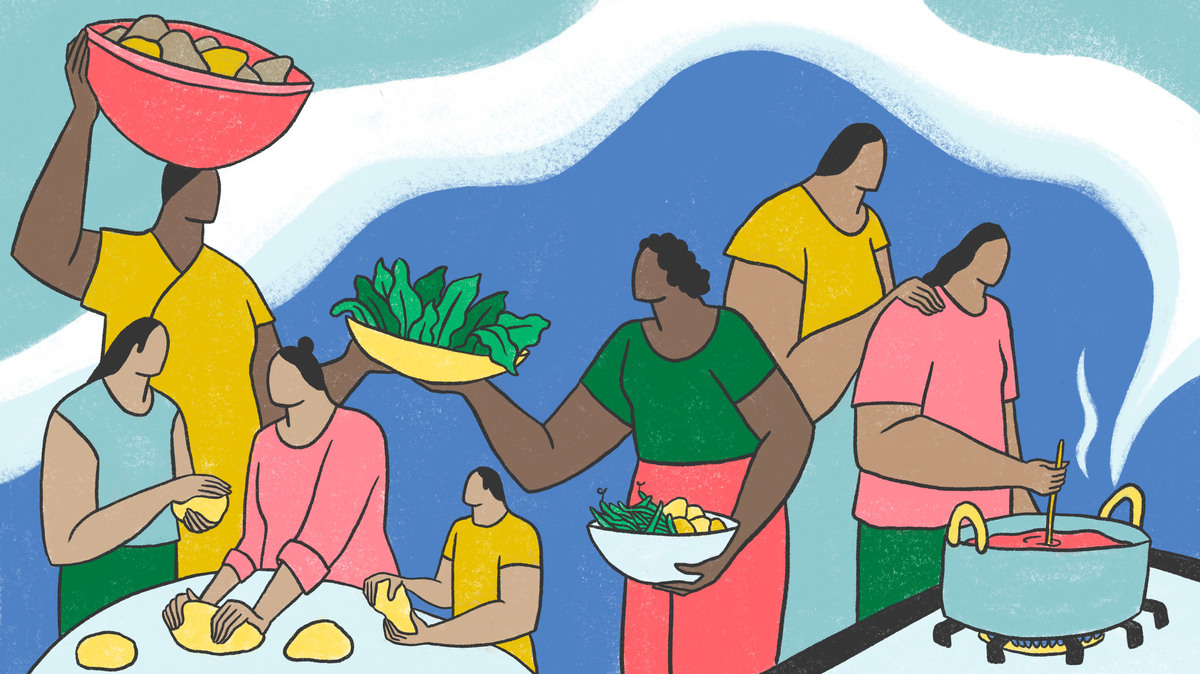

Food stuff is more than just fuel. Food is a link to the stories of our ancestors, and the tales of our descendants.
The late Vertamae Wise-Grosvenor wrote about these connections, both of those as a commentator on NPR, and in her books, like the cookbook-memoir Vibration Cooking: or, the Vacation Notes of a Geechee Female.
“When I cook dinner, I under no circumstances measure or weigh something. I prepare dinner by vibration,” Sensible-Grosvenor writes. “I can notify by the appear and odor of it.”
“Vibration Cooking is a signature text in equally African American food, African diaspora food stuff, and American foods, time period,” claims culinary historian Michael W. Twitty. “I assume energy is an factor that I consider the West is lacking. So what she’s speaking about is the energy of the individual going into the method of cooking.”
Opting into the vibration cooking frame of mind — with the know-how that foodstuff is far more than just a listing of substances — can support you make further connections both equally in and out of the kitchen.
In this episode of Existence Kit, Michael W. Twitty, nutritionist Rujuta Diwekar, and professor Devon Mihesuah share their assistance on how to strengthen the ties to your foods traditions.

Job interview your elders with your smartphone tucked away.
Your neighborhood customers have wisdom to share with you, but you should not count on them to just spill all their secrets. Twitty suggests keeping your arms active when you’re interviewing.
“You are unable to do it with the cell cellphone up in their experience…each individual elder, no make any difference what tradition you occur from, expects you to perform. They do not want to stand all around,” states Twitty. “Work, thoroughly clean, do anything, and then, only then when you make rapport, can you begin to get further.”

Increase your frame of mind to see meals as additional than just a resource of nutrition. Be aware of the language you use to categorize foods.
Some conventional meals might bump up against your preconceived strategies about what foods are healthier and what meals are not.
“You know, as folks, we know that we are significantly a lot more than our age, than our caste, community, race, gender,” claims nutritionist Rujuta Diwekar. “It is the correct similar detail with food. The minute you lessen food stuff to carbohydrate, protein and unwanted fat, you are cutting down food to what it is not.”
Feeding on healthful, she states, just isn’t adhering to a single particular diet plan. She encourages numerous of her clientele to pair staple spices, grains and millets from their Indian heritage with locally sourced create for balanced foods that deepen their relationship with food stuff traditions.
Investigate and rejuvenate past traditions
Not all traditions get passed down. For occasion, numerous Indigenous folks have to investigate their histories to recover traditions shed due to the fact of colonization. Every single tumble, College of Kansas professor Devon Mihesuah hosts a week of Indigenous taking in in which she encourages Indigenous people today to attempt cooking only employing pre-speak to meals foods their ancestors ate prior to colonization.
“There is an terrible lot to choose from, and it continue to normally takes an effort and hard work, specially if you like eggs and like me, you have to have your garlic and items like that. But it genuinely brings about individuals to start performing some analysis.”
For additional, listen to the episode by participating in the audio at the major of this site or below.
What foods helps make you truly feel connected to your heritage? Explain to us about it and send out a picture to [email protected]. A producer could be in contact.
Michael W. Twitty is the James Beard award-successful creator of The Cooking Gene: A Journey Through African American Culinary Heritage in the Previous South. Devon Mihesuah is the author of numerous publications including Recovering Our Ancestors’ Gardens: Indigenous Recipes and Information to Food plan and Health. Rujuta Diwekar is an creator and host of the docuseries Indian Food items Knowledge and the Artwork of Eating Proper.
The audio portion of this episode was developed by Audrey Nguyen. Audio engineering aid by Dennis Nielsen.